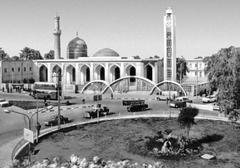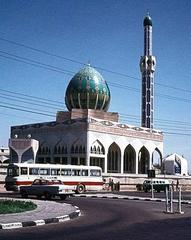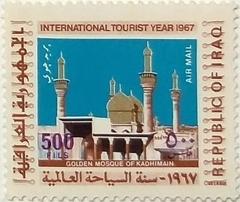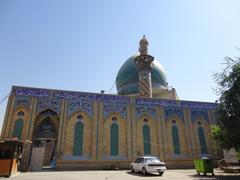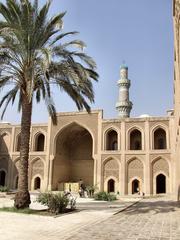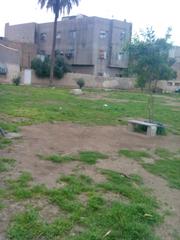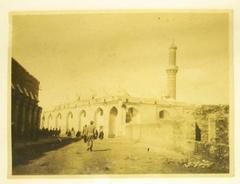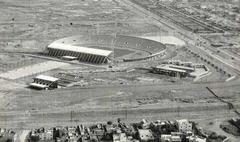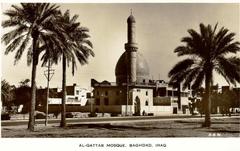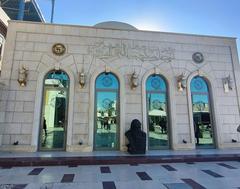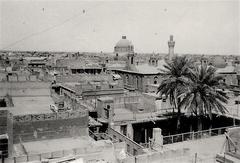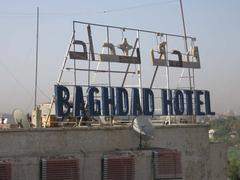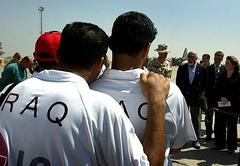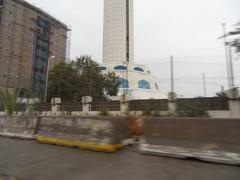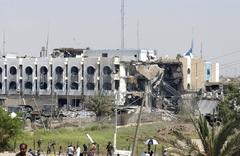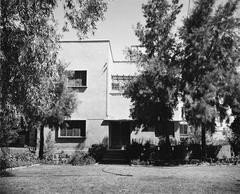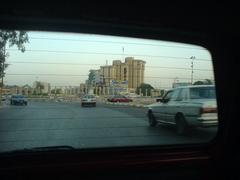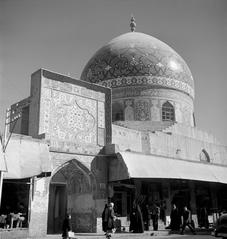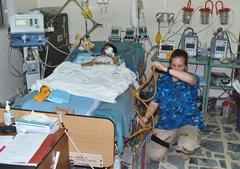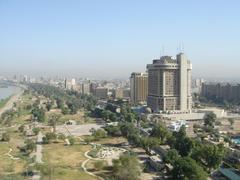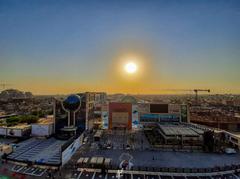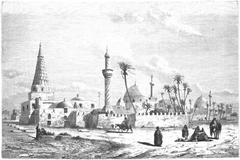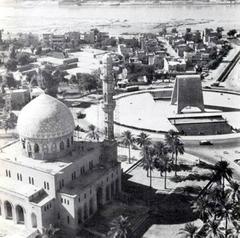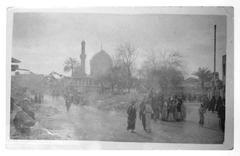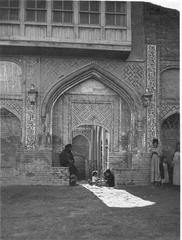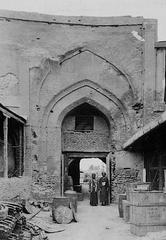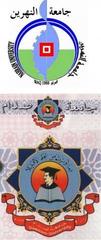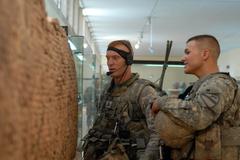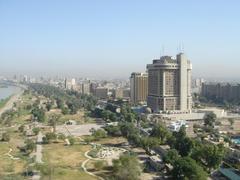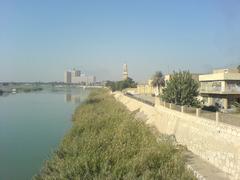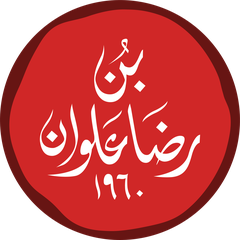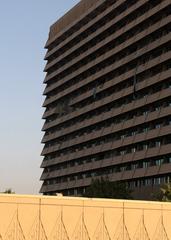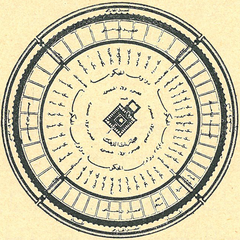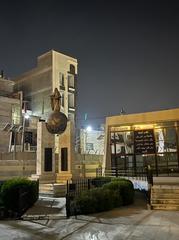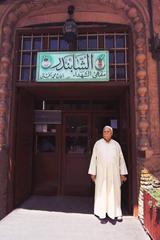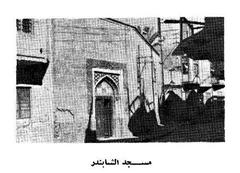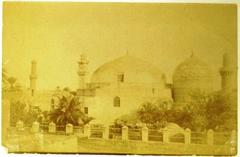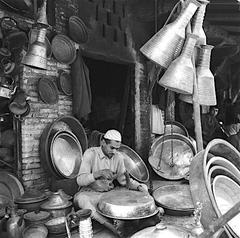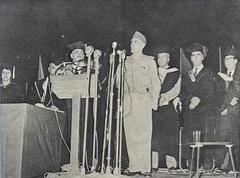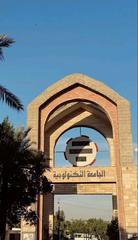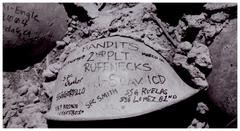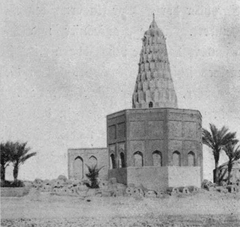Al-Zahawi Café Baghdad: Visiting Hours, Tickets, and Historical Significance
Date: 14/06/2025
Introduction: A Living Icon of Baghdad’s Culture
Al-Zahawi Café is one of Baghdad’s most enduring and celebrated cultural landmarks. Founded in 1917 on the historic al-Rasheed Street, this legendary coffeehouse has witnessed over a century of Iraq’s literary, political, and social life (Wikipedia). Originally known as Amin’s Café, it was renamed to honor Jamil Sidqi al-Zahawi, the renowned Iraqi poet and philosopher, after his death in 1936 (isamveri.org). Al-Zahawi Café has been a gathering place for poets, thinkers, and political figures—a vital setting for Baghdad’s intellectual renaissance and resilience.
Nestled near Al-Mutanabbi Street, al-Maidan Square, and Haydar-Khana Mosque, the café is a living testament to Baghdad’s vibrant past and ongoing cultural revival. Visitors today can immerse themselves in a unique atmosphere, enjoy traditional Iraqi tea, and explore walls lined with photographs and memorabilia chronicling the city’s illustrious history (everything.explained.today). This guide details the café’s history, visitor information, nearby attractions, and practical tips for an enriching experience.
Table of Contents
- Origins and Early Development
- Jamil Sidqi al-Zahawi and the Café’s Namesake
- Cultural and Political Hub
- Restoration and Resilience
- Visiting Information
- Nearby Attractions
- FAQs
- Conclusion and Recommendations
- References
Origins and Early Development
Al-Zahawi Café began as Amin’s Café, a modest spot with benches and wooden tables on the bustling al-Rasheed Street. In an era when clubs and hotels were scarce, cafés like this became crucial meeting points for Baghdad’s intellectuals, artists, and political leaders. The café’s pivotal moment came when Jamil Sidqi al-Zahawi, a key figure in the Arab literary world, began frequenting it, participating in lively debates and conversations (Wikipedia). This legacy cemented its status as a cradle for Baghdad’s cultural and intellectual movements.
Jamil Sidqi al-Zahawi and the Café’s Namesake
Jamil Sidqi al-Zahawi (1863–1936) was a poet, philosopher, and reformer whose ideas and presence significantly shaped the café’s identity (isamveri.org). His vision fostered a cosmopolitan atmosphere where Arabic literature flourished alongside Ottoman and Arab nationalist thought. The café became a magnet for writers and artists, embodying Baghdad’s spirit of open discourse and cultural exchange.
Cultural and Political Hub
Throughout the 20th century, Al-Zahawi Café hosted luminaries such as Ma’ruf al-Rusafi, Muhammad Fadhel al-Jamali, and Abd al-Karim Qasim (Wikipedia). The walls are adorned with photographs and memorabilia, preserving moments from visits by international figures like Rabindranath Tagore (everything.explained.today). The café has long been a crucible for literary debate, political activism, and social reform—its reputation built on the lively, free exchange of ideas.
Baghdad’s coffeehouse tradition dates back to the Ottoman era, and Al-Zahawi Café stands out for preserving a smoke-free, television-free ambiance that encourages intellectual and artistic engagement (travel-tramp.com). Its proximity to Al-Mutanabbi Street—a historic center for booksellers and publishers—places it at the heart of the city’s literary life.
Restoration and Resilience
The 2003 US-led invasion left parts of Al-Zahawi Café damaged (Wikipedia). However, swift restoration efforts revived the café, reflecting the community’s commitment to protecting Baghdad’s cultural heritage (everything.explained.today). Today, it continues to serve as a living archive and a vibrant social space, adapting to new generations while maintaining its historic character.
Visiting Information
Hours and Entry
- Opening Hours: Daily, 8:00 AM to 10:00/11:00 PM (hours may vary on holidays or for special events; check locally for updates).
- Entry Fee: None. Entry is free; guests pay only for food and beverages.
- Payment: Cash only; carry small denominations of Iraqi dinars.
Accessibility
- Physical Access: The café is on ground level and generally accessible, though some historic features (like uneven floors) may pose minor challenges.
- Wheelchair Access: Ramp or ground-level entry is available; for detailed accommodations, inquire in advance.
Menu and Atmosphere
- Beverages: Renowned for strong Iraqi tea (chai) and traditional Arabic coffee (qahwa), served in small glasses.
- Snacks: Light pastries, baklava, and local sweets.
- Ambiance: Antique décor, wooden furnishings, walls covered with literary portraits, and a welcoming, unhurried vibe. Games like chess and dominoes are common.
Tips for Visitors
- Dress Code: Modest attire is recommended; women are not required to wear headscarves inside but should carry one for nearby religious sites (Adventures of Lil Nicki).
- Photography: Ask permission before photographing people; images of the café’s interior and memorabilia are generally welcomed.
- Language: Arabic is primary; some staff and younger patrons may speak basic English.
- Safety: Stay central, visit during daylight, and consult updated travel advisories (Against the Compass).
Special Events & Tours
- Occasional poetry readings, music performances, and cultural talks.
- Guided tours available through local operators; booking in advance is advised.
Nearby Attractions
- Al-Mutanabbi Street: Famed for its book market and intellectual energy (Beyond the Bucket List).
- Shabandar Café: Another historic coffeehouse known for its cultural legacy (CN Traveller ME).
- Haydar Khana Mosque: Notable for its architecture and history.
- Copper Market: A traditional souk with handcrafted goods and local foods.
- Al-Mustansiriyah University: One of the Middle East’s oldest centers of learning (Wondrous Drifter).
FAQs
Q: What are the opening hours of Al-Zahawi Café?
A: Daily from 8:00 AM to 10:00/11:00 PM; hours may vary on holidays.
Q: Is there an admission fee or tickets required?
A: No; entry is free. Pay only for your order.
Q: Are guided tours available?
A: Yes, through local tour operators. The café itself does not offer formal tours.
Q: Is the café accessible for people with disabilities?
A: Generally yes, though some areas may be less accessible due to the building’s age.
Q: Can I take photos inside?
A: Yes, but seek permission before photographing people.
Q: What is the best time to visit?
A: Mornings and afternoons, especially on Fridays when the nearby book market is most active.
Conclusion and Recommendations
Al-Zahawi Café is more than a coffeehouse—it is a living archive, a symbol of Baghdad’s enduring spirit, and a beacon for intellectual and cultural exchange. Its legacy as a hub for poets, politicians, and artists endures, reflected in the lively debates and camaraderie that continue to animate its rooms. Free entry, a prime location near historic sites, and a welcoming atmosphere make Al-Zahawi Café an essential destination for any visitor to Baghdad.
For a memorable experience:
- Plan your visit during daylight hours and combine it with a walk along Al-Mutanabbi Street.
- Enjoy traditional Iraqi tea or coffee and immerse yourself in the café’s unique ambiance.
- Respect local customs and engage with regular patrons to deepen your understanding of Baghdad’s cultural tapestry.
To enrich your journey, download the Audiala app and follow our social media for updates on events, guides, and the latest on Baghdad’s cultural revival.
References
- Al-Zahawi Café, Wikipedia
- Jamil Sidqi al-Zahawi and Arab Intellectual History, isamveri.org
- Coffeehouse culture of Baghdad, everything.explained.today
- Things to Do in Baghdad, Travel Tramp
- Iraq Travel Itinerary, Beyond the Bucket List
- Baghdad Iraq Travel Guide, Adventures of Lil Nicki
- The Best of Baghdad’s Streetside Cafes, CN Traveller ME
- Wondrous Drifter: Reasons to Visit Baghdad
- Against the Compass: Is it safe to travel to Iraq?
